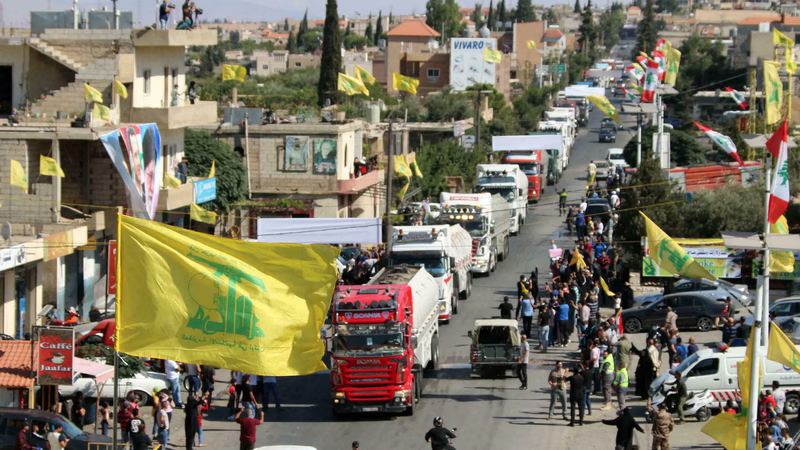
Lebanon"s ports facilitate commodity trade and regional connections. "
Lebanon has an extensive road network that connects major cities, towns, and regions throughout the country. The main highway is the Beirut-Damascus Highway, which links Beirut to the Syrian border. Other major highways include the Beirut-Tripoli Highway, Beirut-Saida Highway, and the Beirut-Tyre Highway. However, poor road conditions, traffic congestion, and lack of proper maintenance have been persistent issues in Lebanon.
Public transportation in Lebanon mainly relies on buses and minibusses, commonly known as "service" or "van." These vehicles operate on fixed routes within cities and towns, as well as between different regions. However, the quality and reliability of public transportation services can vary, and overcrowding during peak hours is common. Beirut also has a public bus system called "Beirut Municipality Buses," which serves specific routes within the city. Lebanon has several seaports that serve as important gateways for maritime trade and transportation. The Port of Beirut is the largest and busiest port in Lebanon, handling a significant portion of the country's imports and exports. Other major ports include the Port of Tripoli, Port of Saida, and Port of Tyre. These ports facilitate the movement of goods, including containers, vehicles, and bulk cargo.
Lebanon currently does not have an operational railway system. However, there have been discussions and plans for the revival of a railway network in Lebanon to improve transportation and reduce traffic congestion. These plans include proposals for light rail systems and commuter trains in the Beirut metropolitan area. Although the road between the two countries is not closed, due to the distance, the goods traded between other countries and Lebanon are currently transported less by land. The main road between Iran and Lebanon passes through Iraq and Jordan, which is not reliable due to the unfavorable conditions in Iraq.
The other way is the route of Turkey and Syria, which connects Iran and Lebanon, and it is a long way. For this reason, most of the transit of goods between the two countries is done by sea. Iran and Lebanon both use rail transit within their territory and with neighboring countries. But at present, the railways of the two countries are not connected and it is not possible to transmit anything.
The Lebanese customs regime and foreign trade laws have been greatly facilitated in recent years and the Lebanese government has imposed very low tariff rates on imported goods. Lebanon does not show any levies on imports but implements a complex system of export and import licenses. Its complex customs is an alternative to customs barriers, high tariffs, and quotas which the country could establish for foreign goods. In Lebanon, the import of oil and petroleum products by 20 local companies and import licenses or export can be transferred to other branches.
Merchants in violation of regulations, have to pay a fine to the customs and the exporter and large quantities of consumer goods do not need a license. In total, for reasons of the location of Lebanese as a transit point for goods between some farmers and the need for transits some goods for Europe, Ian farmer Regulations and frameworks or in the field Customs, in addition to creating a stable source of income, other countries need to be able to Some of the goods that are banned from entering Lebanon include the following:
- Drugs.
- Cars or vehicles are older than eight years.
- Guns, ammunition, and military equipment.
- Products that violate public morality and decency.
- Products were dangerous to public health.
Agricultural products are among the goods that the Lebanese customs clearly state many of its items are specified for import to this country. In these fields, the following categories can be provided:
- Goods in need of seasonal license: Cucurbits, vegetables, Golabay, Grapes, apricots, and wildflowers.
- Goods that need a license during the year: olives, pineapple seeds, onions and potatoes, and silk cocoons.
- Prohibited agricultural goods: lemons, apples, bales, cherries, cherries, strawberries, plums, almonds, and leafy vegetables.
- Goods in need other than those from the Ministry of Foreign Trade: wheat, base products, olive oil, orange juice, sap juice, mustard seeds, and silkworm.
- Goods in need of a license from the Ministry of Industry: white cement, tar, oil, stone, fuel oils, silk thread, electrical wires, unprocessed leather, industrial machinery, and equipment.
Goods in need of a license from other Lebanese ministries:
- Ministry of Health: Pharmaceutical items.
- Ministry of Environment: Chemicals.
According to Lebanese customs regulations, pharmaceutical and food items must be labeled by information, manufacturer's name, date of production, expiration date and do not carry the goods. Goods that are unlabeled due to violation of customs regulations. It is worth mentioning that tobacco in Lebanon is one of the exclusive rights of imports and exports.
Taxis are widely available in Lebanon, particularly in urban areas. They can be hailed on the street or found at designated taxi stands. Taxis in Lebanon operate on a shared basis, meaning multiple passengers may share a ride if they are traveling in the same direction. Taxis can also be hired for longer trips or on an hourly basis. Lebanon has one international airport, Beirut-Rafic Hariri International Airport, located in the southern suburbs of Beirut. It serves as the main gateway for air travel to and from Lebanon. The airport offers both domestic and international flights, connecting Lebanon to various destinations worldwide. However, the economic crisis has led to reduced flight options and increased airfare.
-
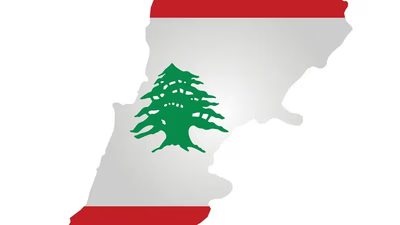
Lebanon"s agricultural sector is diverse, producing olives, citrus fruits, apples, grapes, vegetables, dairy products, and poultry. The country is particularly noted for its high-quality olive oil and wine exports. A robust food processing industry enhances the value of these agricultural products through the production of canned goods and traditional items like hummus and baklava. Additionally, Lebanon"s textile and garment industry plays a significant role in its economy, with Beirut recognized as a fashion hub. The jewelry sector thrives on skilled artisans creating intricate designs in gold and silver. Major industrial outputs include textiles, chemicals, wood products, and oil refining. Lebanon also exports precious stones and fertilizers while importing mineral fuels and machinery. In 2018, Lebanon"s trade balance showed a deficit with exports at $3.
8 billion against imports of $20. 3 billion. The country maintains trade relations with various nations including Saudi Arabia and China for imports and exports respectively. The pharmaceutical industry is well-established in Lebanon, producing generic drugs for both local consumption and export. The services sector significantly contributes to the economy through banking, tourism, telecommunications, and IT services. "
-
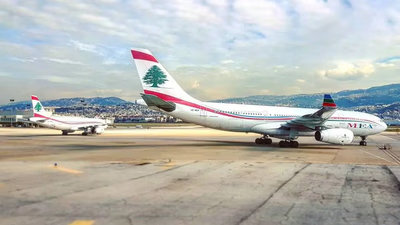
Lebanon"s transport infrastructure features a comprehensive road network linking major cities, including highways like Beirut-Damascus and Beirut-Tripoli. While the road system facilitates connectivity, it faces challenges such as traffic congestion, particularly in urban areas. The country also utilizes its Mediterranean coastline for ferry services between coastal cities, enhancing intercity travel options. Car rentals are widely available, allowing flexibility for both residents and visitors. Public transportation includes buses and minibusses, which offer affordable commuting but can be overcrowded during peak hours. Taxis and ride-hailing services like Uber provide additional transport choices, although traffic congestion remains a significant issue. Travelers should be cautious of road conditions and local driving practices, especially on narrow mountain roads. Beirut-Rafic Hariri International Airport serves as the primary air travel hub, connecting Lebanon to global destinations. "
-
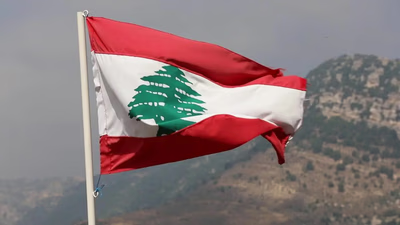
The Lebanese economy is diverse, with significant contributions from services, industry, and agriculture. The services sector, particularly banking and finance, has historically been the largest contributor to GDP. Lebanon"s banking system has attracted both domestic and international deposits due to its stability. However, recent challenges such as a banking crisis and capital controls have hindered economic activity. The tourism sector has also faced setbacks due to political instability and security concerns, despite Lebanon"s appeal as a tourist destination. Agriculture remains the least significant sector, contributing only 10% of GDP and employing 12% of the workforce. Despite its agricultural potential, Lebanon relies heavily on imports from Arab countries. The country is known for its fashion, cosmetics, food products, and pharmaceuticals, exporting dairy and clothing primarily to Europe.
Remittances from expatriates have been crucial for domestic consumption but have declined due to economic challenges. The civil war (1975-90) severely damaged infrastructure but post-war recovery efforts saw growth in various sectors until the 2006 conflict disrupted progress again. Since 2019, Lebanon has faced a severe economic crisis marked by currency depreciation, high inflation, unemployment, and shortages of essential goods. The government is seeking international assistance to implement reforms aimed at restoring economic stability.
-

Lebanon"s transportation infrastructure is characterized by an extensive road network connecting major cities, with the Beirut-Damascus Highway being the most significant. However, issues such as poor road conditions and traffic congestion persist. Public transportation relies heavily on buses and minibuses, but service quality varies, leading to overcrowding during peak hours. The Port of Beirut is the largest maritime gateway for trade, alongside other ports like Tripoli and Saida. Currently, Lebanon lacks an operational railway system, although plans for revival exist to alleviate traffic issues. Trade routes between Iran and Lebanon are primarily maritime due to unreliable land routes through Iraq and Jordan. The Lebanese customs regime has been simplified in recent years, with low tariffs on imports but a complex licensing system for exports and imports. Certain goods are prohibited from entering Lebanon, including drugs and older vehicles.
Agricultural imports require specific licenses based on seasonal needs or regulations from various ministries. Taxis are widely available in urban areas for shared or private rides, while Beirut-Rafic Hariri International Airport serves as the main air travel hub despite reduced flight options due to economic challenges. "
-
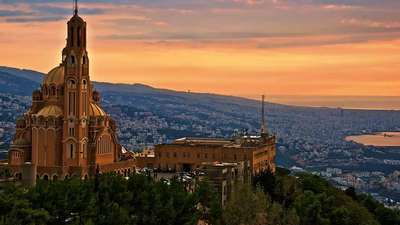
Lebanon"s geography, characterized by its mountainous terrain and Mediterranean coastline, has significantly influenced its political structure and social dynamics. The natural barriers created by the mountains have led to the isolation of various communities, fostering distinct religious and ethnic identities. This has resulted in a confessional political system that allocates power among different religious groups, including Maronite Christians, Sunnis, and Shiites. The sectarian quota system ensures representation in government based on religious affiliation, with a parliament divided equally between Christians and Muslims. Lebanon"s strategic location in the Middle East has made it susceptible to external influences and conflicts, particularly from neighboring Syria and Israel. The rise of influential political entities like Hezbollah reflects the complex interplay between geography and politics. Economic activities are deeply intertwined with this political landscape; Lebanon"s ports have historically served as vital trade hubs. However, ongoing regional tensions have led to significant emigration as many Lebanese seek security abroad. Overall, Lebanon"s unique geographical features continue to shape its trade dynamics and political landscape.





